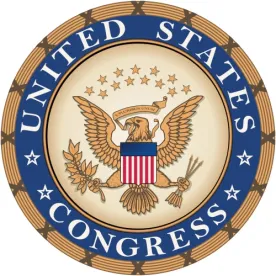The U.S. Congress returns to work from August break this week, with just four months and fewer than 50 legislative days left in the 116th Congress and its most critical legislative priorities still unresolved. Amongst the backlog are three consequential pieces of legislation for the maritime industry: the National Defense Authorization Act (NDAA), the Coast Guard Authorization Act, and the annual appropriations bills that direct FY21 government spending. For interested stakeholders, here are five key things to watch for in the next four months:
Election Year Tightens Schedule
September is poised to be brimming with legislative activity as lawmakers scurry to tackle a list of must-pass items before a recess in the lead up to the elections. This year’s pre-election break is scheduled for early October and extends through the first week of November. After the election, Congress will return for a lame-duck session, where the agenda will be driven primarily by the election results. A shift in power in the either the White House or Senate will empower the Democratic Party to delay policy decisions until after January 2021. It is important to note that all pending legislation expires at the end of 2020, when the current session of Congress adjourns.
NDAA Conference
The FY21 NDAA has passed both the House and Senate, H.R. 6395 and S.4049, and will enter the formal conference committee process this month. In addition to authorizing funding for the Department of Defense, the NDAA authorizes programs for the U.S. Maritime Administration, including many essential maritime programs. This year’s NDAA debate will include discussion of a new program for U.S. flag tankers in international trade to support national defense sealift needs. The NDAA is a historically bipartisan success story and has been enacted into law for 59 consecutive years, but nothing is guaranteed in the current Congress.
Coast Guard Bill Seeks Unique Path
Also pending is legislation authorizing funding for the U.S. Coast Guard, which includes policy language and directed spending related to many U.S. maritime programs, projects, and initiatives. The two chambers of Congress must act to reconcile the differences in their two proposals. In addition to passing as a standalone bill, H.R. 3409, the Coast Guard Authorization Act was bundled into the FY21 NDAA as an amendment offered by House Transportation and Infrastructure Committee Chairman Peter DeFazio. Coast Guard authorization bills have historically moved independently of the NDAA, so it is worth watching how this procedural change impacts ultimate negotiations between both chambers of Congress.
Appropriations Future Unknown
Programs vital to the maritime industry receive funding through multiple appropriations bills, including spending bills for the Departments of Transportation, Homeland Security, Energy, and Defense. This year, the House cleared 10 of its 12 annual appropriations bills through two large multi-bill packages, HR 7617 and HR 7608, while action on the Senate side remains stalled.
The House-passed FY21 Transportation, Housing and Urban Development Appropriations Act funds several critical maritime programs, including the Maritime Security Program, Small Shipyard Grant Program, and the Port Infrastructure Development Program. In addition to regular appropriations, the House bill also contains a massive supplemental allotment of $75 billion in emergency infrastructure spending, including relief for the Maritime Administration’s Marine Highways Program, Small Shipyard Grant Program, and State Maritime Academies.
The FY21 Energy and Water Development Appropriations Act directs funding for many key water transportation infrastructure projects, including appropriations for the U.S. Army Corps of Engineers’ civil works programs. This session’s House-passed bill includes an additional $43.5 billion in emergency infrastructure appropriations, $17 billion of which is for the Army Corps.
The FY21 Department of Homeland Security Appropriations Act provides funding for the U.S. Coast Guard, as well as the Customs and Border Protection’s Jones Act Division of Enforcement. The DHS spending bill has been contentious in recent years, and was pulled from consideration from the House minibus. A continuing resolution at FY20 funding levels is believed to be the most likely outcome of current negotiations.
With just weeks remaining before the government’s spending authority expires, there is an expectation that a short-term extension of all FY21 appropriations bills will be necessary.
New Congress Brings New Agendas
The agenda for the 117th Congress ultimately will be dictated by the results of the November election. January 2021 will usher in either the first term of the Biden presidency or the second term of the Trump presidency. In the Senate, a handful of races will decide the balance of power for the new Congress, and with it control of the legislative calendar. On the House side, Speaker Pelosi is expected to retain, if not extend, her party’s majority. The outcome of the election will weigh heavily on the direction of the 2021 agenda.
In the coming weeks, lawmakers will be in a sprint to wrap up action on their legislative priorities, as the second session of the 116th Congress comes to a close. Decisions on key authorizations and trillions of dollars in federal appropriations will be made, and interested parties should be mindful of the impacts of these actions.






 />i
/>i
